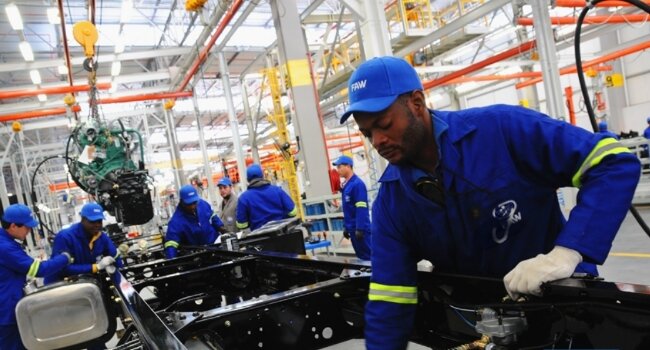In a recent half-yearly review of the economy, the Manufacturers Association of Nigeria (MAN) revealed a concerning trend in the manufacturing sector, citing a loss of no fewer than 3,567 jobs during the first half of 2023. The figures, obtained by The PUNCH, underscore a 32.8% reduction in employment generation capacity, dropping from 9,559 jobs in the first half of 2022 to 6,428 jobs in the same period this year.
The report from MAN highlighted a challenging business environment attributed to hasty policies and the lingering impact of the currency redesign policy, resulting in what was described as a “naira crunch.” The decline in job creation was identified as a consequence of this unfavorable business environment.
The inventory of unsold finished products in the manufacturing sector also witnessed a significant increase, rising to N271.9 billion in the first half of 2023, compared to N187 billion in the same period of 2022. This represents a substantial 45.4% increase of N84.88 billion and a 4.1% decline when compared with the second half of 2022.
The rise in inventory was attributed to factors such as weakened consumer purchasing power, driven by diminishing real household income due to inflationary pressures and the scarcity of the naira in the first quarter of the year. The report noted that subsidy removal and exchange rate unification policies towards the end of the first half created uncertainty, leading to a ripple effect that eroded investors’ confidence.
MAN expressed concern that businesses and foreign investors are becoming increasingly cautious about committing capital, hindering economic growth and recovery prospects. The combined effect of these challenges is seen in higher inflationary pressure, escalating production costs, and a reduction in consumers’ purchasing power, significantly impacting manufacturers.
As the manufacturing sector grapples with these issues, there is a growing call for a reevaluation of economic policies to create a more conducive environment for businesses and to spur job creation and economic growth.










